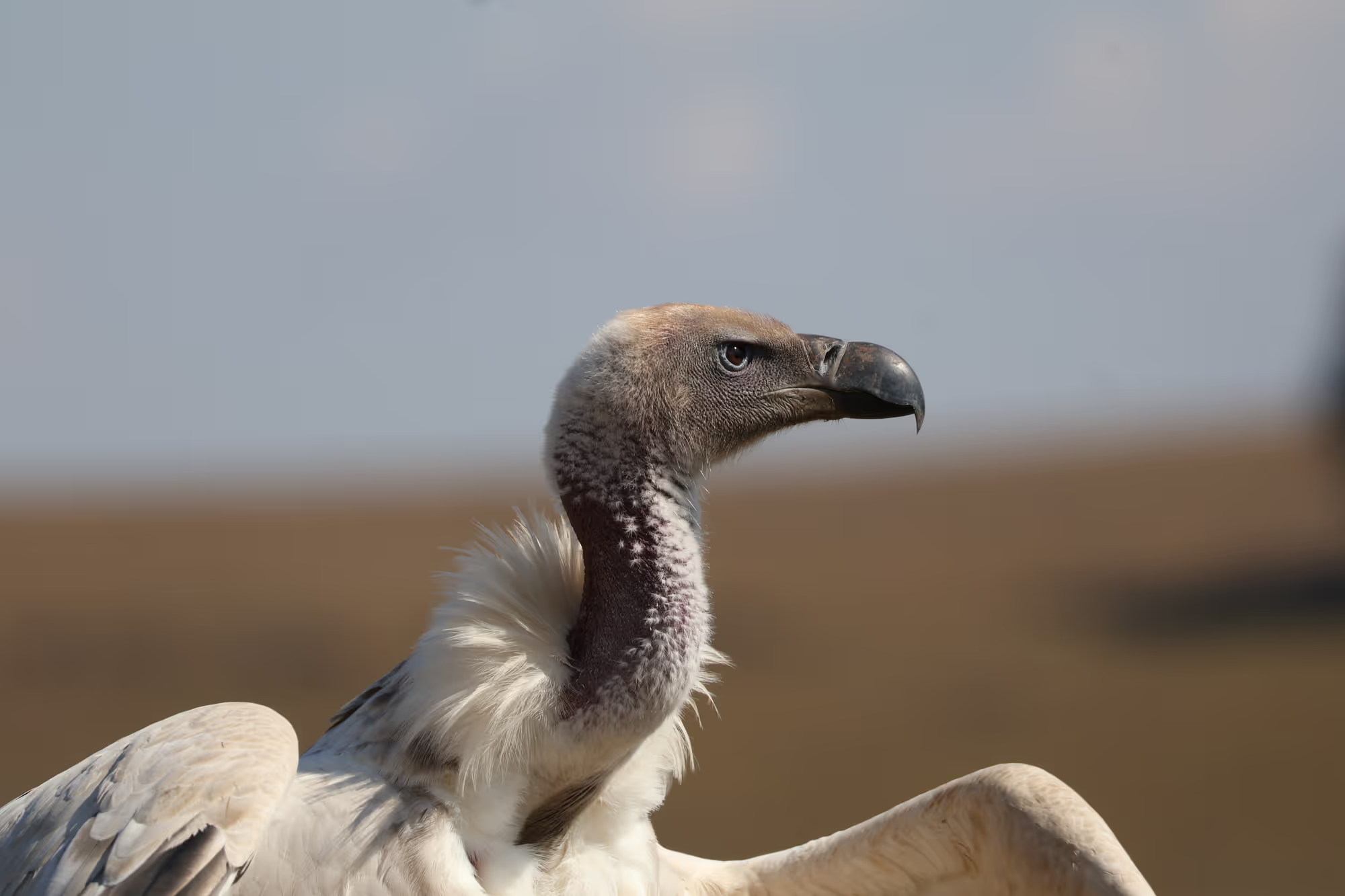At midday on the 23rd of December 2019, Project Vulture was informed of another possible vulture poisoning incident in Zululand, KwaZulu-Natal. The Zululand area has been targeted a number of time during 2019, and in fact, this incident is the second of its kind on the same property within the last five months. The Wildlife ACT Emergency Response Team was dispatched and got to the scene with great haste. The Emergency Response manager PJ Roberts describes the sequence of events below.
“After receiving the call from the property manager that he had found a fresh vulture carcass in the same location as August’s incident, we knew there was a high chance that this was another tragic vulture poisoning and immediately initiated the poisoning response protocols. August’s incident left a total of 9 critically endangered African White-backed Vultures (AWB) dead with another 2 having to undergo intensive rehabilitation culminating with their successful release back into the wild in early December. Three of my colleagues and I made our way to Rolling Valley with the hope of a better outcome than five month previous.

The first dead AWB vulture we found confirmed our fears, with a full crop, contorted feet and many dead flies scattered around its remains; these all clear signs of fast acting poison. Our ground team swept the immediate vicinity but struggled to pick up any evidence of other birds or a laced bait. A Heligistix helicopter was dispatched to assist in surveying the area for further signs of poisoning. Once in the air we immediately found a second AWB dead sprawled out on top of a nearby Acacia. A further 30 minutes of flying we struggled to find any more signs of poisoning, until a flash of yellow was seen under a tree roughly 300m of the first discovered bird. We landed and investigated the area further to find the devastating remains of multiple birds hidden at the base of the tree. Included in this discovery was the removed, yellow, wing tags of H065; a young Lappet-Faced Vulture tagged by the project in Hluhluwe-iMfolozi Park in October 2017 as a fledgling.
With light fading, we treated the vulture poisoning scene as a crime scene and collected evidence as we swept the area. No more than 30m away from this first tree, the morbid discovery of 13 processed and harvested AWB vultures, with their heads and feet removed, were found very purposefully hidden in a thick bush. The fact that the birds were hidden demonstrates that the perpetrators are aware that it is illegal to kill and harvest vulture parts. Another tagged individual was amongst these dead, H071; an adult AWB, tagged by the project in Hluhluwe-iMfolozi Park in January 2018.

Another 30m away and we discovered a snared and killed impala that was laced with poison. A trail of dead flies and dung beetles showed us where the carcass had been laying in the open when it had been fed on by at least 15 AWB and 1 Lappet-Faced Vulture, no more than 24 hours previous. We collected all contaminated carcasses and remains and burnt them to ash in order to remove the poison from the system.
Arriving at a vulture poisoning scene like this with everything so fresh but too late to assist in saving any poisoned birds is heart breaking. This event just demonstrates the devastating impact of poison and the sinister nature of those poaching these animals as they hide the carcasses from plain sight. Losing one vulture is always a tragedy, losing at least 16 birds at one feeding is a crisis.”
A case has been opened through the local SAPS Stock-theft unit and we are hoping this leads to an arrest. Vultures are protected by law and it is illegal to possess or kill any of the 6 vulture species found in South Africa. The plight of vultures within KwaZulu-Natal and South Africa was recently under the spotlight at The Conservation Symposium in November. Attendees were reminded of the fact that these birds are under threat, and that if the illegal harvest of these birds is not halted, then extinction may be just around the corner and the services that they provide within the ecosystem being lost forever.
Project Vulture is a partnership between conservation organisations that work together to fight to conserve these rare birds. The partners include Ezemvelo KZN Wildlife, Wildlife ACT, the Endangered Wildlife Trust, Birdlife South Africa, Raptor Rescue, private reserves and other stakeholders.
Please help Project Vulture in its fight against the vulture crisis.
Report tagged vulture sightings and donate to the cause.
Contact: Chris Kelly (Wildlife ACT) for further information - chris@wildlifeact.com





.jpg)
.avif)




